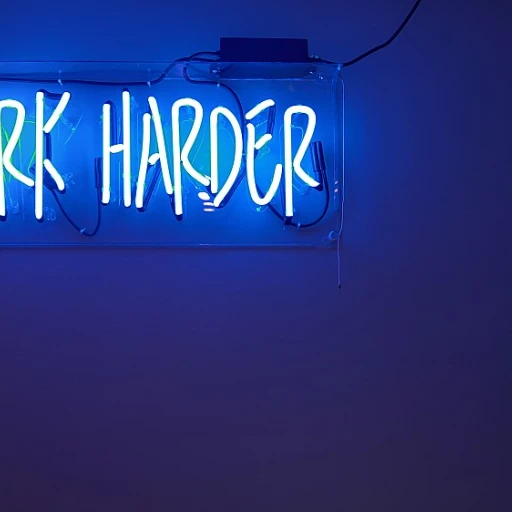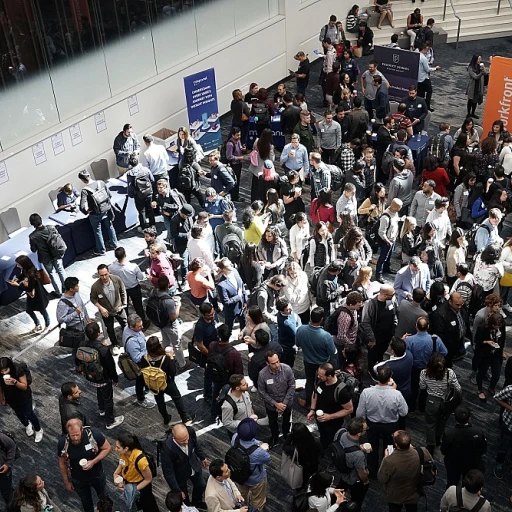
Understanding employee performance goals in the modern workplace
The evolving nature of performance goals in today’s organizations
Employee performance goals have always been a cornerstone of effective HR management. In the modern workplace, these goals are no longer just about hitting numbers or completing tasks. They are about aligning individual objectives with the broader mission of the organization, supporting professional development, and fostering a culture of continuous improvement. As businesses adapt to rapid changes, the way teams and employees set and achieve goals is evolving too.
Why clear and measurable goals matter
Setting clear, measurable, and realistic goals helps employees understand what is expected of them. It provides a roadmap for their work, encourages accountability, and supports ongoing feedback. Well-defined performance goals also make it easier for managers to track progress, conduct meaningful performance reviews, and identify areas for development. This clarity is especially important for team members working in hybrid or remote environments, where communication and alignment can be challenging.
- Individual goals: Tailored to each employee’s role, strengths, and development needs
- Team goals: Foster collaboration and help teams work towards shared objectives
- SMART goals: Specific, Measurable, Achievable, Relevant, and Time-bound
- Development goals: Focus on building new skills, improving soft skills, or enhancing customer service
Performance management and the role of feedback
Effective performance management is not just about annual reviews. It’s an ongoing process that includes regular feedback, coaching, and recognition. Employees benefit from knowing how their work contributes to the organization’s success, and managers can help employees improve by providing timely, constructive feedback. This approach supports both individual and team development, helping employees reach their full potential.
Challenges in traditional goal setting
Despite its importance, traditional goal setting can be time-consuming and subjective. Managers may struggle to set fair and relevant objectives for all employees, and it can be difficult to track progress or adapt goals as business needs change. These challenges highlight the need for more innovative approaches to performance management. For a deeper dive into how organizations are rethinking staff evaluation, check out this resource on innovative approaches to staff evaluation using AI.
How artificial intelligence is transforming goal setting
AI-Powered Precision in Goal Setting
Artificial intelligence is reshaping how organizations approach employee performance goals. Traditional goal setting often relied on manual processes, subjective judgment, and limited data. Now, AI-driven tools can analyze vast amounts of performance data, skills assessments, and business objectives to help managers and employees set more precise, relevant, and achievable goals.
Personalization and Alignment
One of the key advantages of using AI in performance management is the ability to personalize goals for individual employees and teams. AI systems can identify strengths, skill gaps, and development needs by analyzing work patterns and feedback. This helps in crafting goals that are not only aligned with organizational objectives but also tailored to each employee’s role, career stage, and professional development aspirations.
- Data-driven insights: AI can suggest goals based on historical performance, current trends, and future business needs.
- Continuous feedback: Automated feedback mechanisms enable real-time adjustments to goals, ensuring they remain relevant as work evolves.
- SMART goals support: AI tools help ensure goals are Specific, Measurable, Achievable, Relevant, and Time-bound, increasing clarity and accountability.
Enhancing Collaboration and Transparency
AI also supports team-based goal setting by analyzing collective performance and identifying opportunities for collaboration. This helps teams align their objectives, share best practices, and improve overall performance. Transparent goal tracking and progress updates foster a culture of trust and continuous improvement.
For a deeper dive into how AI is transforming the way organizations craft employee performance goals, explore this comprehensive guide on AI-powered performance goal setting.
Examples of employee performance goals enhanced by AI
AI-powered goal examples for real-world HR
Artificial intelligence is making it easier for HR teams to set, track, and refine employee performance goals. By analyzing data and patterns, AI helps managers and employees create objectives that are more relevant, measurable, and aligned with business needs. Here are some practical examples of how AI enhances goal setting and performance management:
- Personalized development goals: AI tools can analyze an employee’s skills and suggest targeted development goals. For example, if a team member needs to improve problem solving or customer service, AI can recommend specific training or projects to build those skills.
- SMART goals tailored to roles: AI systems help managers and employees craft SMART (Specific, Measurable, Achievable, Relevant, Time-bound) goals by providing templates and real-time feedback. This ensures objectives are clear and achievable, supporting both individual and team performance.
- Continuous feedback and progress tracking: AI-driven platforms monitor work patterns and provide ongoing feedback, helping employees adjust their efforts in real time. This supports more dynamic performance reviews and helps employees stay on track with their goals.
- Team alignment and collaboration: AI can identify overlapping objectives among team members, helping HR align goals for better collaboration. This is especially useful for cross-functional teams working on shared projects.
- Identifying skill gaps: By analyzing performance data, AI highlights areas where employees or teams may need support. This allows HR to set targeted goals that address key gaps and drive professional development.
For those interested in how AI is shaping the future of HR, including opportunities for early career development, you can explore AI internship opportunities for high school students to see how the next generation is preparing for AI-driven workplaces.
These examples show that AI is not just about automation. It’s about making performance management more human-centric, helping employees grow, and supporting teams in achieving their objectives more effectively.
Challenges in implementing AI-driven performance goals
Common Obstacles in Adopting AI for Performance Goal Setting
Integrating artificial intelligence into performance management brings significant potential, but it is not without its hurdles. Organizations aiming to improve employee performance through AI-driven goal setting must navigate several challenges to ensure success.
Data Quality and Privacy Concerns
AI systems rely heavily on accurate, comprehensive data to help set relevant goals and track progress. Incomplete or biased data can lead to ineffective or unfair performance goals for employees. Additionally, handling sensitive employee information raises privacy and compliance issues, requiring robust data governance and transparency.
Change Management and Employee Buy-In
Transitioning from traditional performance management to AI-enhanced systems often meets resistance. Employees and managers may be skeptical about the objectivity of AI recommendations or worry about losing the human touch in feedback and development. Building trust and providing clear communication about how AI supports, rather than replaces, human judgment is key.
Alignment with Organizational Objectives
AI can help set smart goals and individual objectives, but these must align with broader business strategies. If AI-generated goals are not connected to team or organizational priorities, employees may focus on the wrong areas, impacting overall performance. Ensuring that AI tools are configured to reflect company values and objectives is essential.
Skill Gaps and Training Needs
To fully leverage AI in performance management, both HR professionals and team members need new skills. Understanding how to interpret AI-generated insights, use goal examples effectively, and integrate feedback into development plans requires targeted training. Without this, the benefits of AI may not be realized.
Maintaining Fairness and Reducing Bias
AI algorithms can unintentionally reinforce existing biases if not carefully monitored. This can affect the fairness of employee goals, performance reviews, and development opportunities. Regular audits and diverse data inputs are necessary to help ensure equitable outcomes for all team members.
- Ensuring data quality and privacy
- Gaining employee and management buy-in
- Aligning AI-driven goals with business objectives
- Addressing skill gaps in AI literacy
- Monitoring for fairness and bias in goal setting
By acknowledging these challenges, organizations can take proactive steps to improve the effectiveness of AI in performance management, helping employees reach their development goals and drive better results for the team.
Best practices for integrating AI into performance management
Aligning AI Tools with Your Performance Management Strategy
Integrating artificial intelligence into performance management is not just about adopting new technology. It’s about making sure AI tools actually support your team’s goals and the company’s objectives. Start by identifying the key areas where AI can help, such as setting smart goals, tracking progress, or providing real-time feedback. Make sure the AI solutions you choose fit your existing workflows and help employees at every level improve their skills and performance.Ensuring Transparency and Fairness
Employees need to trust that AI-driven performance management is fair and unbiased. Clearly communicate how AI is used in goal setting, performance reviews, and development planning. Explain how data is collected and used to evaluate employee goals and progress. Regularly review the algorithms to check for bias, especially when assessing soft skills or customer service outcomes. Transparency helps team members feel confident that their individual goals and achievements are recognized accurately.Training and Supporting Managers and Employees
AI can make performance management more efficient, but only if everyone knows how to use it. Provide training for managers and team members on how to set objectives, interpret AI-generated feedback, and use insights to support professional development. Encourage open discussions about how AI can help employees reach their development goals and improve problem solving. Ongoing support ensures that the technology is used to its full potential.Continuous Improvement and Feedback Loops
Performance management is not a one-time event. Use AI to create continuous feedback loops, allowing employees to track their progress in real time and adjust their work as needed. Encourage regular check-ins between managers and team members to discuss goal examples, review performance, and set new objectives. This approach helps everyone stay aligned and focused on both individual and team development.- Start small: Pilot AI tools with a single team or department before a wider rollout.
- Monitor impact: Regularly assess how AI is affecting employee performance and engagement.
- Stay flexible: Be ready to adapt your approach as you learn what works best for your organization.
Measuring the impact of AI on employee performance
Key Metrics for Evaluating AI-Driven Performance Management
To truly understand the value of artificial intelligence in performance management, organizations need to measure its impact on employee performance and goal achievement. This means looking beyond traditional performance review cycles and focusing on data-driven insights that AI can provide. Here are some practical ways to assess the effectiveness of AI in helping employees reach their goals:
- Goal Achievement Rates: Track the percentage of individual and team goals completed on time. AI tools can help visualize progress and highlight areas where employees may need additional support or development.
- Quality of Objectives: Evaluate whether goals set with AI assistance are more specific, measurable, and aligned with business priorities compared to previous goal setting methods. SMART goals are a common benchmark here.
- Feedback Frequency and Quality: Monitor how often employees and managers exchange feedback. AI-powered platforms can prompt timely feedback, making it easier to address issues and recognize achievements in real time.
- Employee Engagement and Satisfaction: Use surveys and pulse checks to gauge how employees feel about the new goal setting process. Are they more motivated? Do they feel their development goals are clearer and more achievable?
- Skill Development Progress: Analyze how AI-driven recommendations help employees improve key skills, such as problem solving, customer service, or soft skills. Look for tangible improvements in performance reviews and team outcomes.
Comparing Before and After: AI’s Real Impact
To get a clear picture, compare performance data from before and after AI implementation. This can reveal trends such as faster goal completion, improved alignment between individual goals and team objectives, or increased participation in professional development activities. For example, if employees are achieving their goals more consistently or receiving more actionable feedback, it’s a sign that AI is making a positive difference.
Continuous Improvement Through Data
AI doesn’t just help set and track goals; it also provides ongoing analytics to refine the process. Regularly review the data to identify patterns, such as which types of goals are most challenging or which teams are excelling. Use these insights to adjust goal setting strategies, provide targeted support, and ensure that performance management remains dynamic and responsive to employee needs.
Ultimately, measuring the impact of AI on employee performance is about combining quantitative metrics with qualitative feedback. This balanced approach helps organizations not only improve performance management but also foster a culture of growth and continuous improvement for all team members.













